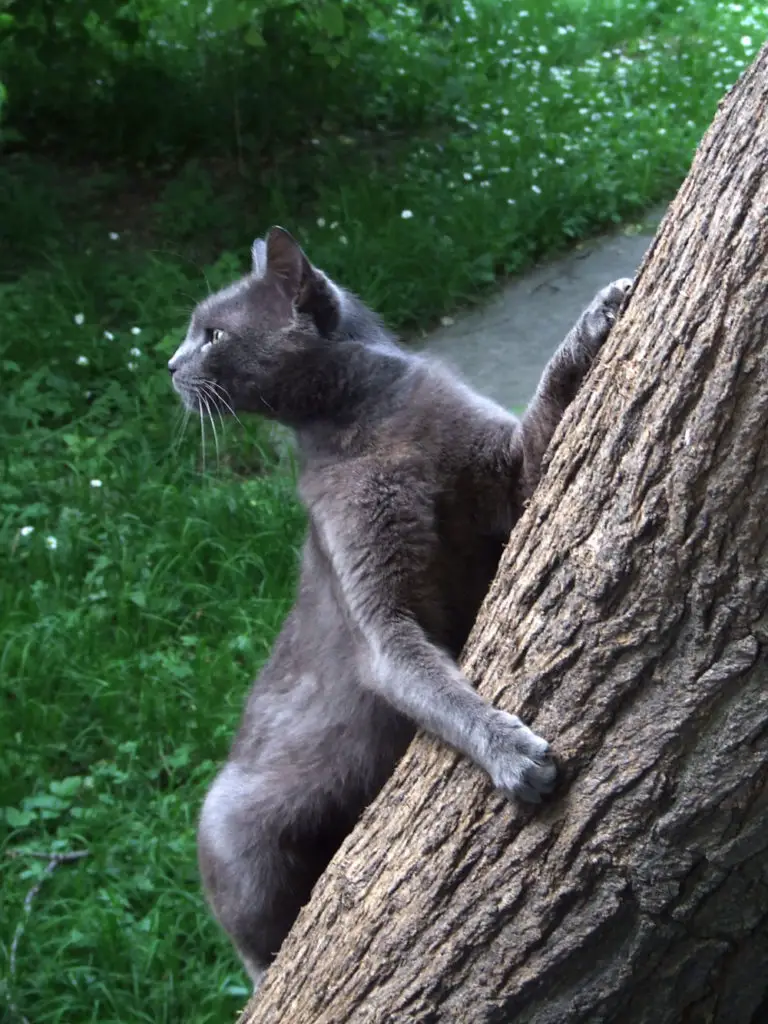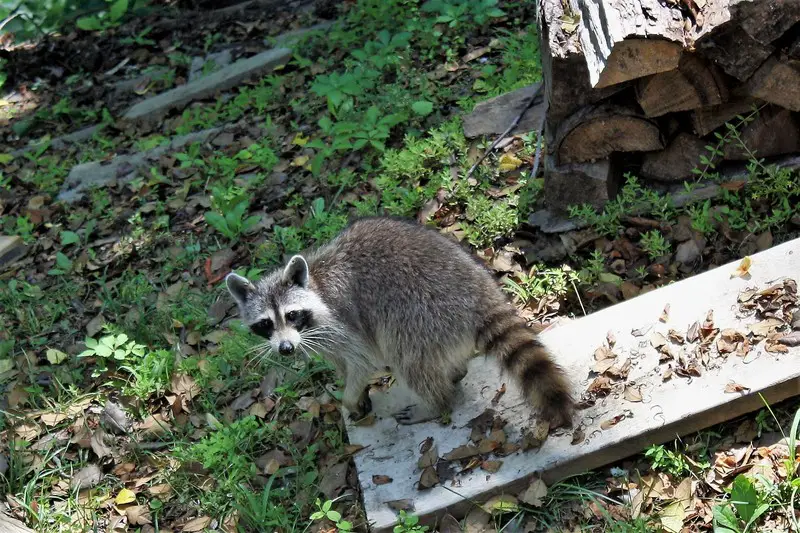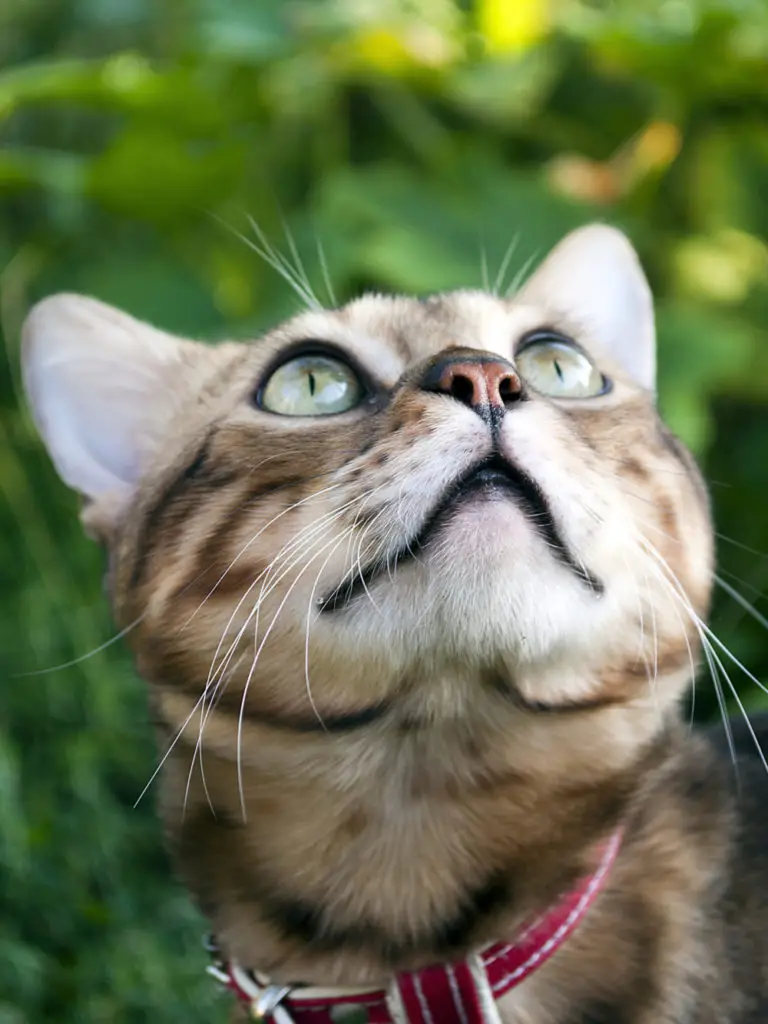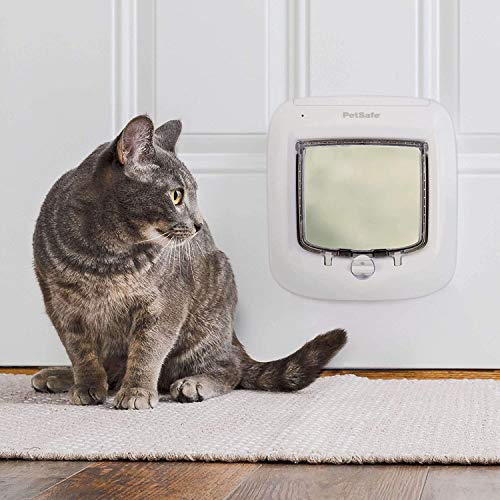How To Keep Raccoons Out Of Cat Food: 6 Effective Tips
My kitten Watson isn’t much of a big eater. He prefers eating some and then snacking on the leftovers throughout the night. However, we’ve noticed that Watson would often meow loudly for food even if we left him a bowlful at night. A quick review of the security cameras revealed the thief in the night: raccoons. The critter steals my cat’s food each night. With this, we devised a plan on how to keep raccoons out of cat food to stop the crime.


Why you should drive away raccoons away from cat food
Aside from the fact that raccoons steal cats’ meals, they are also notorious rabies carriers. This is a serious risk if you’re yet to vaccinate your cat. And even if your kitty is vaccinated, you may get face-to-face with the critter and get infected.
You wouldn’t want a wild animal getting into your house. Raccoons won’t just target your cat’s food. They will also invade your kitchen and scavenge anything they can take. This will leave a big mess on your home, not to mention the contaminants and pathogens that the critter may leave behind.
Moreover, raccoons attack cats. This could cause serious injuries to a cat, especially a small kitten. This is the same reason why I got really worried when we saw raccoons getting near Watson at night.
How to stop raccoons from eating your cat’s food
The following tips will help drive away raccoons that will try to steal your cat’s food.
Attach spikes on your fence
One of the first things you should do is to raccoon-proof your fence. These animals are excellent climbers and they can easily get past a 10-feet tall fence.

The easiest solution here is installing bird spikes on top of your fence. Make sure that the critter has no spot to step on and hop into your property.
Some pet owners use electric fences, but these are potentially dangerous for many wildlife. Also, your dog will get hurt in case you forgot to turn it off before letting the pooch out. Learn here how to keep cat from jumping fence
Anything that will make it difficult for the raccoon to climb on your fence is a great start. You should also pair it with the other tips I discussed below.
Seal your trash bins
Trash bins are the leading attractants to wild animals like raccoons. These critters love dumpster diving to hunt for food. But as they get closer to your home, the raccoons might sniff your cat’s food.
Like cats, raccoons have a strong sense of smell. They use this to communicate with fellow raccoons and to detect food sources.

As much as possible, remove these smelly attractants so the raccoon will not take interest in what’s inside your home.
Block all entryways
Raccoons are sneaky burglars. They can easily enter your home through innocent-looking holes. And since they are excellent climbers, raccoons can use the chimney of your house as an entryway.
You should also seal your attic for any holes where the raccoons could enter. Make sure that you use thick and sturdy wood planks to seal it so the critters won’t have the chance the squeeze in.
Aside from that, you should also seal the cat door. I suggest switching to a cat door with a sensor (Check on Amazon) that only opens when it detects your cat’s microchip. Others are paired with receiver collars that your kitty will wear.
Switch to a raccoon-proof feeder
If you have a kitten like mine who snacks all night long, a raccoon-proof feeder is the solution. These are smart feeders where you can program mealtimes to avoid your cat from eating whenever it wants. Some of these can even detect the cat’s microchip, preventing raccoons from dispensing food from the container.
Use motion-detecting lighting
The good thing here is that raccoons are pretty easy to scare away. A light with a motion sensor is enough to send this critter running. Since raccoons associate lighting with human presence, they will bolt the moment your light turns on. Also, the sudden flash of light will startle the animal.
However, some raccoons can learn that the motion-triggered light is harmless. This is why you should also add other safeguards to ensure that no one will steal your cat’s food.
Sprinkle some pepper
Lastly, you can use a raccoons’ strong sense of smell against them. Some of the scents raccoons hate are cayenne pepper, garlic, onion(Please read here how much onion will hurt a cat), and peppermint. Even Epsom salt works wonders in keeping these critters away.
For our situation, I made a spray made of pepper and onions. The strong scent of this spray is irritating to raccoons and will surely drive them away. If you are to use this same method, make sure that you spray after several days since the odor will wear off. For those using this outdoors, spray it again after it rains since the odor will be washed away.
Why do raccoons like cat food?
To be fair, raccoons like eating any food it can get. Since cat food is tasty and smelly, it’s a very appealing choice. Also, it’s easy to get since the food is sitting plainly on food bowls. Also, some cats tend to befriend raccoons and share their food with them.
It’s important to stop this feeding setup because raccoons will soon flock to your home. Also, it’s never good for wild animals to lose their fear of humans. This could be catastrophic since feral animals bring diseases that could be transmitted to both cats and humans.
Will raccoons kill a cat?
Raccoons are usually bigger than cats however it’s rare for them to slaughter a feline. While the two species will often get toe-to-toe within their territories, raccoons don’t usually hunt and eat cats.
However, you shouldn’t be too complacent, especially if you have a kitten. While raccoons aren’t known to hunt cats, a small kitty might become one of the rare fatalities.
Do mothballs repel raccoons?
Raccoons hate a lot of smell, but it turns out that mothballs are not one of them. These repellents are designed to drive moths and small insects away, but not critters like raccoons.
Raccoons will just ignore the mothballs and proceed to their target. Also, it’s not safe to use mothballs long-term. Over time, these pesticides will vaporize and spread all over your house. Prolonged exposure to these chemicals is said to increase a person’s risk of liver damage and other life-threatening illnesses.
Will raccoons leave on their own?
Most of the time, raccoons don’t stay on a single spot for long. These critters are pretty independent. The baby raccoons will disperse from the family once it’s old enough to look for food. However, adult raccoons tend to huddle in groups so you should take the presence of one raccoon in your home seriously. There might be more in the attic or your basement.
It’s best to set up repellents instead of waiting for the wild animals to go away on their own.
Will a radio keep raccoons away?
Radios are excellent noise-makers that can drive away raccoons for a few nights. However, the critters might get used to the sound and ignore it after some time. I suggest rotating your scare tactics so it will remain effective.
You can turn a radio on for a few nights then utilize motion-activated lights. Pair this with a repellent scent and the raccoons will surely think twice about stealing your cat’s food.
Can raccoons break through ceilings?
Raccoons have cute little hands that they use to grab things. This means they can lift roof tiles and create a hole big enough for them to enter. You should always inspect your attic to check for roof damages that may point to the entry of wild animals.
Once you spot any, fix it right away with a thick piece of wood. I suggest installing ceiling reinforcements that will be harder for raccoons to remove. You can also consult with a local roofer if the raccoons are using your roof as an entry and exit point.
Conclusion
Knowing how to keep raccoons out of cat food is a matter of safety for both you and your kitty. Raccoons are vectors of transmissible diseases, so they shouldn’t have access to your home. Aside from that, the critter will make a mess in your home, not to mention the harm it may bring to your cat.
With a few household items, some hacks, and patience, you can drive these pesky wild animals away.

